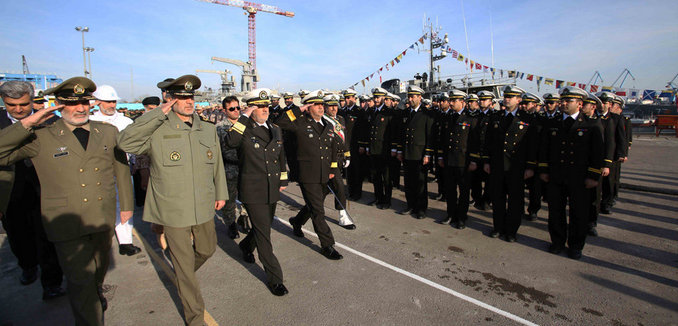Iranian Supreme Leader Ayatollah Ali Khamenei ordered that $2.5 billion should be transferred from the nation’s reserve fund and to its military, continuing a trend that has been ongoing since the nuclear deal was implemented two years ago, Radio Free Europe/Radio Liberty/ (RFE/RL) reported Thursday.
The decision to increase the military budget comes in the wake of demonstrations across Iran spurred by economic concerns, especially military spending in conflicts across the Middle East. According to Radio Free Europe/Radio Liberty, described the demonstrations as being driven “by price hikes but also word of a draft government budget that earmarked major funding for religious institutions and the clerically dominated country’s armed forces.”
Anger against the regime was heightened earlier this month when the government unveiled a golden ship engraved the Koran, prompting criticism on social media for failing to address economic problems while producing an expensive object of art.
A study in June 2016 determined that Iran’s economy would grow at a rate of 4% a year over the next five years driven by the ending of sanctions as part of the nuclear deal. But rather than spending the infusion of billions of dollars into the economy on domestic needs, the money has been going to boost Iran’s military spending, which increased 90% from 2016 to 2017. Last year, Iran’s parliament voted to designate $7.4 billion of Iran’s defense budget to the IRGC, marking a 24% increase in spending on the powerful institution.
Former Secretary of Treasury Jack Lew had assessed in advance of the nuclear deal that Iran, constrained by domestic needs, would be limited in what it could spend on its military and terror support. “Most of the money Iran receives from sanctions relief will not be used to support those activities,” Lew said. “Iran is expected to use new revenues chiefly to address those needs, including by shoring up its budget, building infrastructure, maintaining the stability of the rial, and attracting imports,” he added.
Some of the “biggest beneficiaries of the nuclear accord” have been have been state-owned businesses, including those controlled by Khamenei, Mark Dubowitz and Saeed Ghasseminejad wrote earlier this week.
[Photo: Mehr News]




